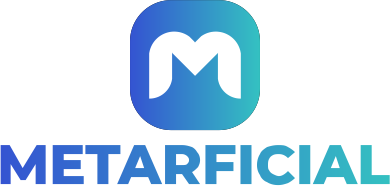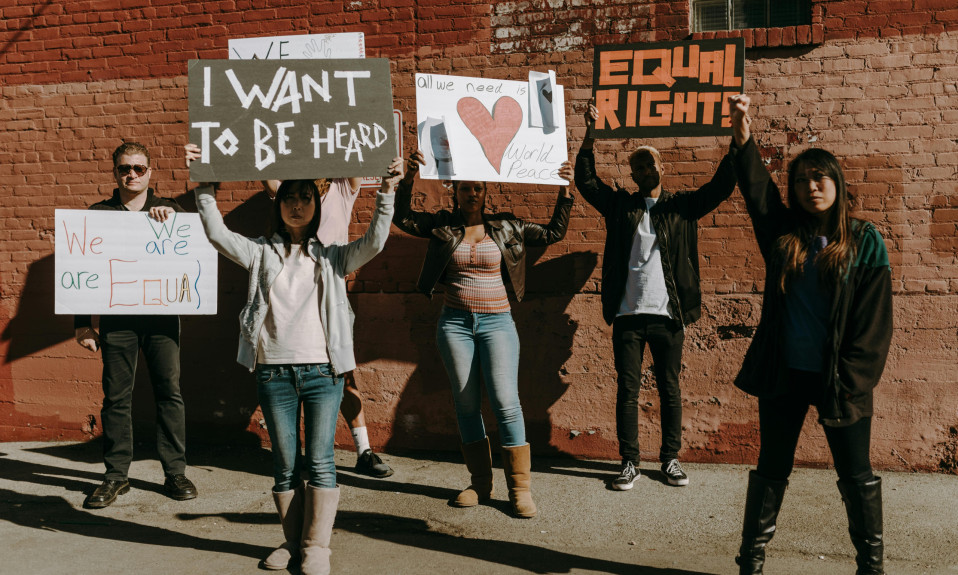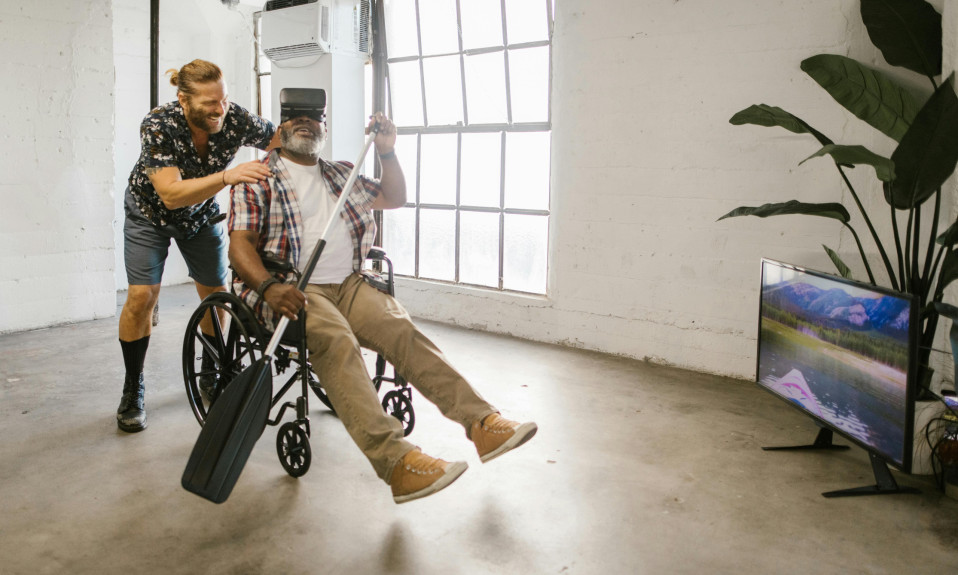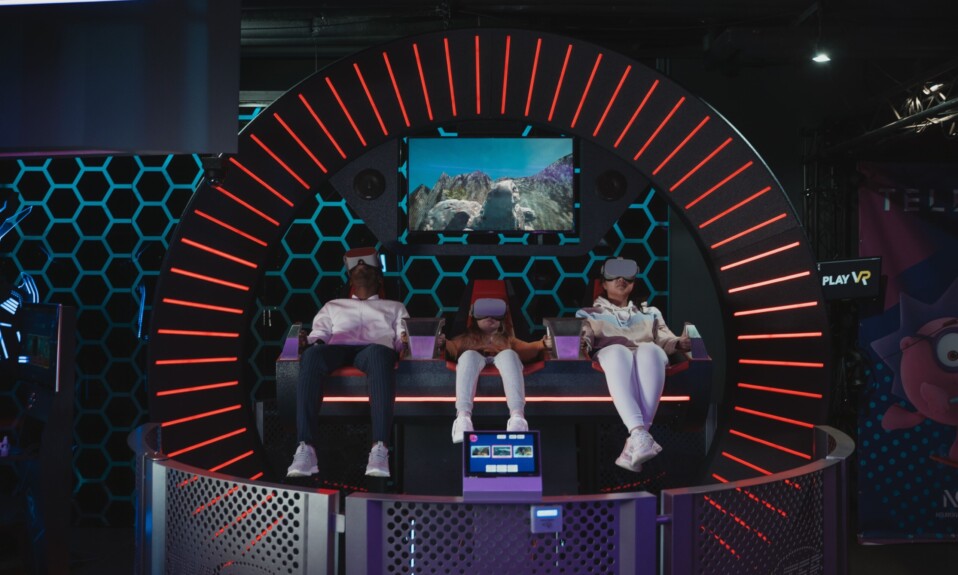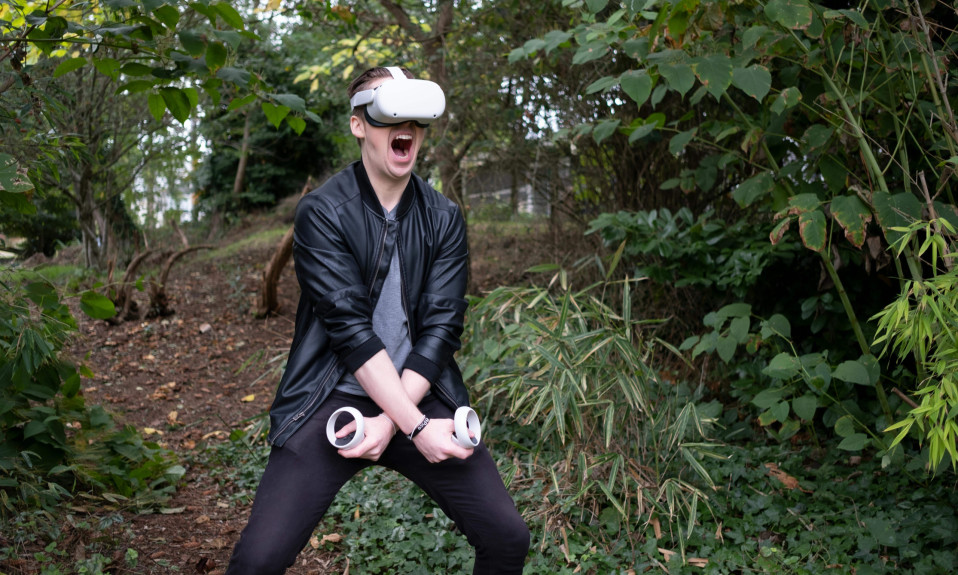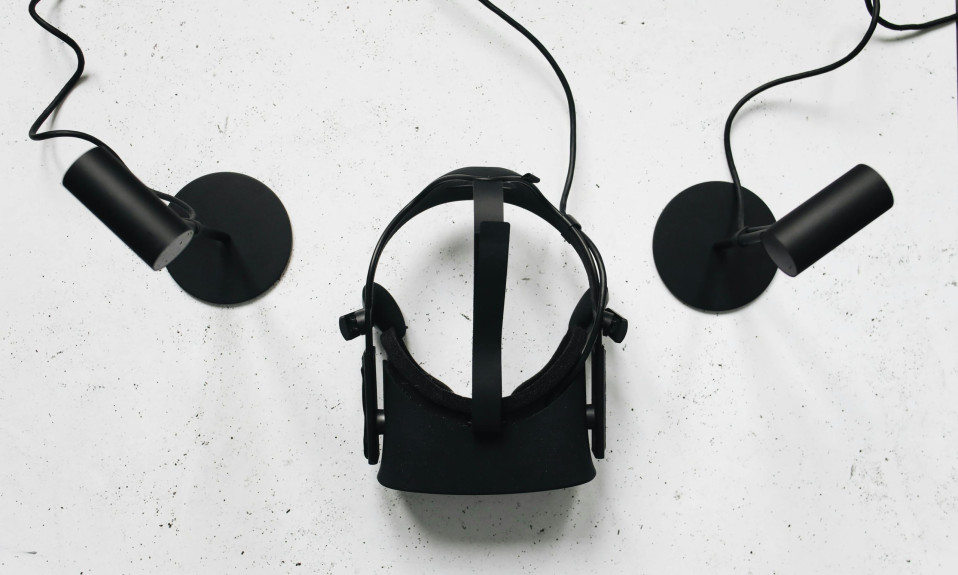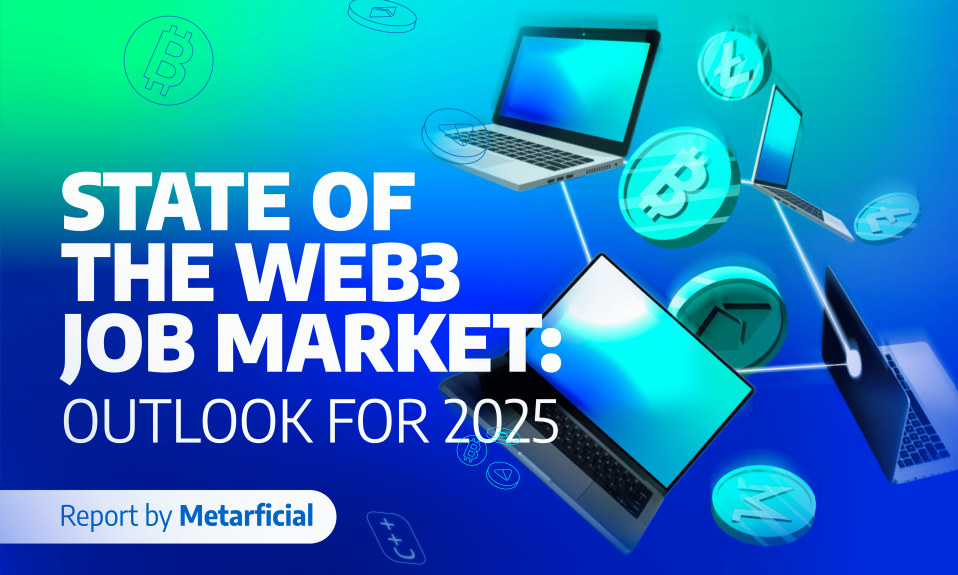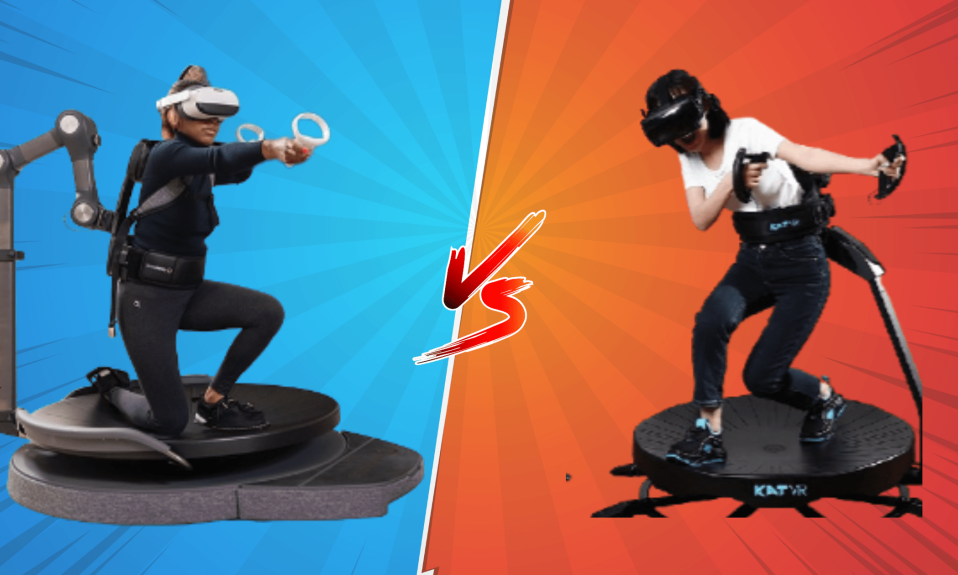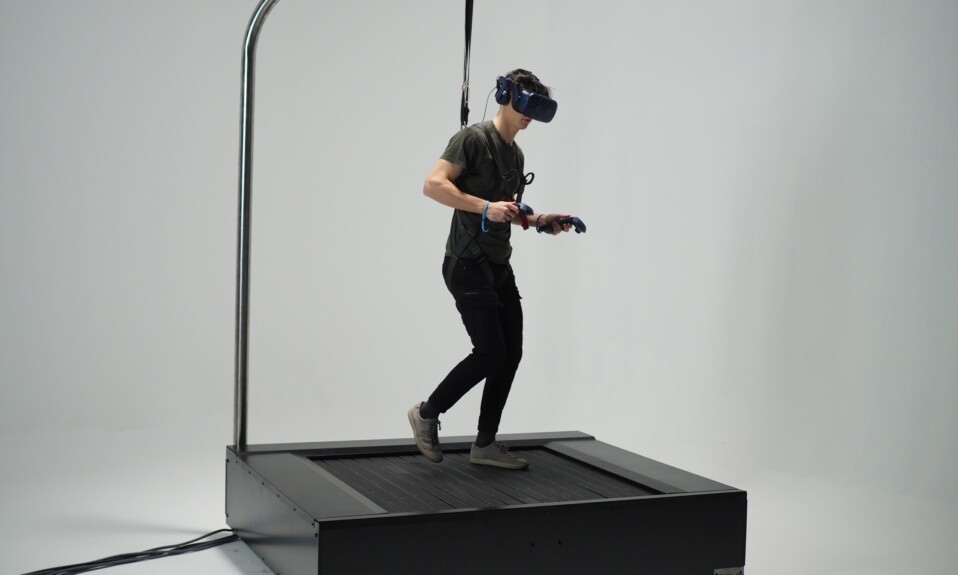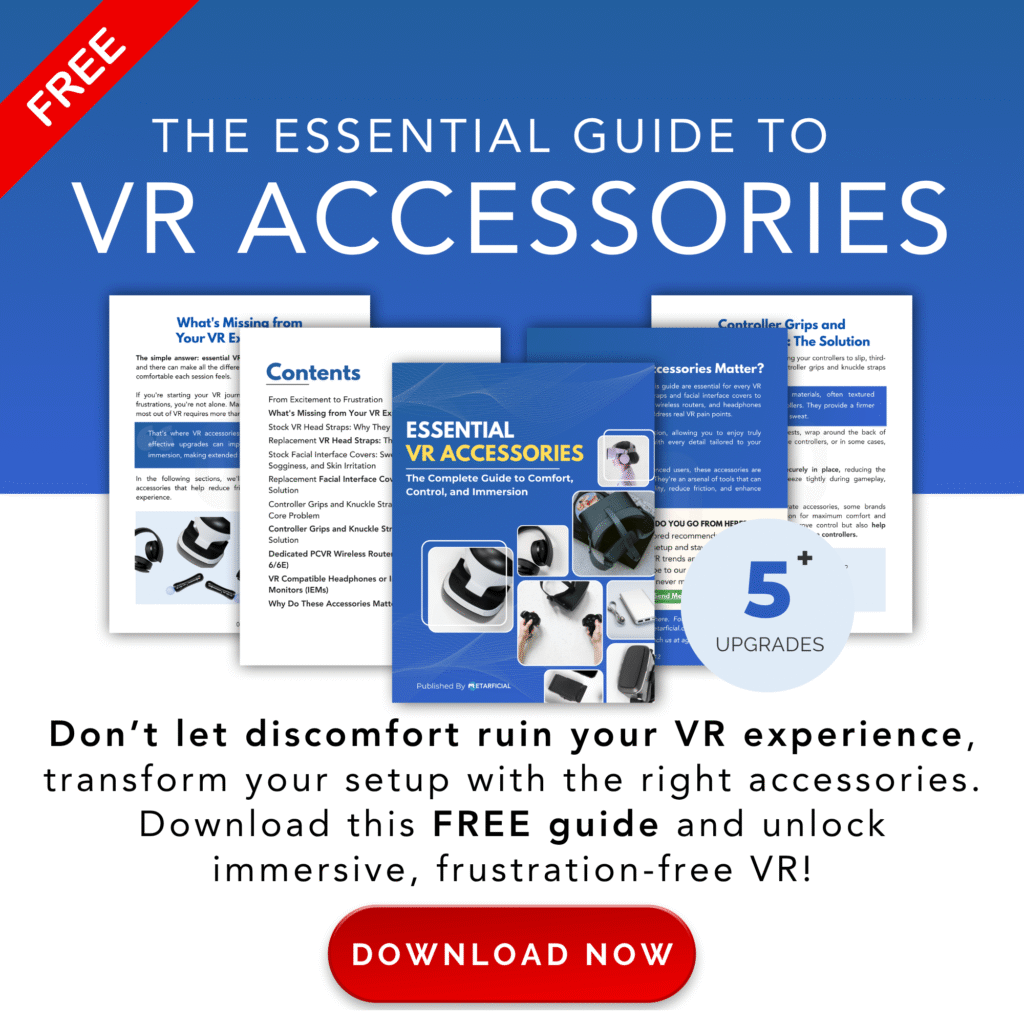The evolution of the Internet from Web 2.0 to Web 3.0 signals a persistent transition from centralized platforms and governing authorities to a more inclusive and decentralized web ecosystem.
With Web 3.0, blockchain-based solutions like decentralized autonomous organizations (DAOs) emerged to eliminate top-down governance hierarchy and promote direct democracy.
Proponents of decentralization advocate for direct governance and personalized control over user data within the web and social platforms.
“Users should be able to vote for changes, participate in governance, make decisions, and have absolute control over their data.”
In our previous article, we examined the integration of blockchain technology within existing virtual reality and metaverse infrastructures.
We uncovered the applications of cryptocurrencies and tokenomics, smart contracts for transparency and automation, NFTs for digital asset ownership, and DAOs for governance within the metaverse.
This article, however, seeks to investigate the viability of decentralized autonomous organizations (DAOs) for governance in the metaverse.
Without further ado, let’s get started.
I do not want a discount, said no one ever! Upgrade your VR setup today with top-tier accessories—use code META20 for 20% off + free shipping on orders over $15. Level up your VR experience now ➡️ Shop & Save!
Quick Navigation
The Metaverse and its Conceptualization
Often seen as the next iteration of the internet, the metaverse refers to a shared and persistent virtual experience created through the convergence of interactive and immersive digital technologies such as virtual and augmented realities.
In a broader sense of its conceptualization, the metaverse is the realization of an idea – a unique point in time where the technologies that support interactive digital experiences merge into a shared, immersive, and persistent ecosystem.
Thus, the metaverse envisioned is an interconnected ecosystem comprising various interoperable web platforms, decentralized applications, and digital experiences.
Governance Challenges in the Metaverse
Decentralization is one of the core tenets of the metaverse that aims to democratize corporate governance and promote active user participation in legislation within the metaverse ecosystem.
The metaverse shouldn’t be governed or controlled by a single entity but by users’ collective and collaborative effort across various interoperable virtual economies and digital platforms.
As such, Web3 metaverses like Decentraland and Sandbox adopt blockchain-based solutions and interoperability standards to enable communication, encourage user-generated content, facilitate voting, and transfer digital assets or virtual identities across the metaverse.
However, these platforms represent a smaller segment of the metaverse ecosystem, largely dominated by centralized and siloed corporations.
The hardware and software infrastructures that provide gateway access to the metaverse reek of centralized entities, governing bodies, and corporations looking to monopolize various facets of the metaverse ecosystem.
Karim Lakhani regards this phenomenon and other irregularities within the purported decentralized infrastructure as a “Decentralization Mirage.“
The concentration of power among corporations in the metaverse often leads to privacy concerns and distrust and inadvertently supports monopolistic practices, undermining the goal of decentralization.
If decentralized autonomous organizations (DAOs) are viable solutions for decentralized governance, how can they address governance challenges within the metaverse?
I do not want a discount, said no one ever! Upgrade your VR setup today with top-tier accessories—use code META20 for 20% off + free shipping on orders over $15. Level up your VR experience now ➡️ Shop & Save!
The Rise of Decentralized Autonomous Organizations (DAOs)
DAOs, as they are known today, were first conceptualized as “Decentralized Autonomous Corporations (DAC)” by Daniel Larimer in 2013. His idea involved organizations devoid of centralized authorities and governed by decentralized protocols.
However, DAOs gained popularity following the launch and subsequent collapse of “The DAO” in 2016. At that time, it was one of the world’s largest crowdfunding projects run entirely by smart contracts on the Ethereum blockchain.
Smart contracts are tamper-resistant, immutable, and self-executing lines of code that function autonomously once deployed on the blockchain.
Over the last decade, the development and adoption of decentralized autonomous organizations (DAOs) have significantly increased across various industries.
Blockchain-based entities and organizations existing today view DAOs as an innovative approach to decentralized governance and organizational structure.
What Are Decentralized Autonomous Organizations (DAOs)?
Decentralized autonomous organizations (DAOs) can be defined differently based on their application models and the context in which they are implemented.
However, the principle of a shared, distributed, and decentralized governance system facilitated by blockchain technology is a common thread across diverse applications.
A decentralized autonomous organization (DAO) is a blockchain-based governance system where smart contracts autonomously enforce managerial or operational rules of an organization, to varying degrees, without centralized control.
Simply put, a DAO is a system of governance that utilizes code deployed on the blockchain to assert varying degrees of control over the affairs of an organization without third-party interference.
There are different types of DAOs ranging from investment DAOs, protocol DAOs, and social and grant DAOs, all serving distinct purposes while leveraging the decentralized nature of blockchain technology.
I do not want a discount, said no one ever! Upgrade your VR setup today with top-tier accessories—use code META20 for 20% off + free shipping on orders over $15. Level up your VR experience now ➡️ Shop & Save!
Characteristics of Decentralized Autonomous Organizations (DAOs)
A 2019 study on the concept, model, and applications of decentralized autonomous organizations summarized the characteristics of DAOs as “distributed and decentralized, autonomous and automated, organized and ordered.”
Distributed and Decentralized Governance System:
Decentralized autonomous organizations (DAOs) adopt a bottom-up governance hierarchy, allowing all participants of an organization to partake in decision-making through voting, thereby promoting inclusiveness and direct democracy.
Typically, joining a DAO involves purchasing blockchain-issued governance tokens that grant users membership, voting rights, and other types of privileges as specified by the rules of the DAO or smart contracts encoded on the blockchain.
On Decentraland, voting power correlates to the number of governance tokens ($MANA) each user possesses, which could potentially trigger an imbalance of voting power.
Similarly, voting privileges on the Bitcoin network are granted only to miners, with voting power being proportional to the computing power each miner contributes to the Bitcoin network.
A 2018 study on blockchain technology suggests that the rules and procedures associated with blockchain-based governance systems involve both “On-chain” and “Off-chain” governance mechanisms.
On-chain governance mechanisms account for the immutable rules, self-executing code, and governing principles encoded directly into the blockchain, which define some or all of the rules of interactions between participants in a DAO.
On the other hand, off-chain governance mechanisms involve rules and decision-making processes that usually occur “off-chain” and influence the operation, direction, and future development of blockchain-based systems.
Some examples of off-chain governance procedures include proposals for infrastructural changes and development, off-chain voting processes, debates, and discussions for community building.
Autonomous and Automated via Smart Contracts:
Decentralized autonomous organizations (DAOs) are a new form of decentralized governance and organizational structure that eliminates the need for centralized management control and promotes community autonomy for governance.
By utilizing smart contracts and blockchain technology, DAOs function autonomously under the rules and regulations specified by their stakeholders.
The blockchain, a distributed ledger, records all transactions within a DAO transparently and immutably, which helps build trust and ensure that all members are held accountable for their actions within the organization.
Many DAOs believe that “Code is law” and rely entirely on smart contracts to govern their affairs, a phenomenon known as “The Rule of Code.”
Smart contracts can aggregate the votes or preferences of members, grant controlled access to funds, and transfer and manage an organization’s resources while enforcing the rule of code.
However, smart contracts possess an inherently tamper-resistant nature, which makes it difficult to change or modify their primary code base if issues or regulatory concerns arise.
In 2016, a security vulnerability exploited in “The DAO’s” smart contract resulted in the theft of approximately $50 Million worth of ether from “The DAO’s” treasury.
While “The DAO’s” governance smart contract’s code base permitted contract upgrades, it did not account for retrieving stolen funds nor provide means for re-appropriating contentious transactions of such magnitude.
Eventually, the Ethereum community implemented a hard fork that reversed the transaction but caused a split in the community into two separate blockchains: Ethereum (ETH) and Ethereum Classic (ETC).
I do not want a discount, said no one ever! Upgrade your VR setup today with top-tier accessories—use code META20 for 20% off + free shipping on orders over $15. Level up your VR experience now ➡️ Shop & Save!
Organized and Ordered Community Structure:
Decentralized autonomous organizations (DAOs) exhibit diverse organizational structures and voting mechanisms that often reflect the nature, goals, and objectives of DAO communities.
Well-defined organizational structures clarify roles, responsibilities, and privileges for all stakeholders.
Some frequent roles in DAO communities include investors, members or general participants, developers, and miners.
Members and stakeholders of DAO communities get incentivized for both active and passive participation.
Based on the reward system defined in smart contracts, participants may receive tokens or tokenized shares of a DAO’s profit and losses.
At other times, the reward for participation could be capital gains, especially for investors, as market forces increasingly recognize and reward the intrinsic value of DAO communities.
In contrast, DAO voting mechanisms stipulate how consensus is arrived at by specifying the rules and regulations governing the voting and decision-making process outlined in the smart contract.
On the Bitcoin network, developers can propose updates to the Bitcoin protocols, but only miners are authorized to vote on changes and improvements.
Colony, a DAO infrastructural platform, approves decisions and proposals by default unless an objection arises, which triggers a discussion and resolution through voting.
Essentially, DAOs employ diverse voting mechanisms tailored to their specific communities, showcasing their flexibility and adaptability in governance.
Potential Drawbacks and Criticisms of Decentralized Autonomous Organizations (DAOs)
While DAOs are an innovative approach to decentralized and distributed governance, research on blockchain-based solutions reveals certain drawbacks and concerns regarding DAO infrastructure.
Some of the potential drawbacks, limitations and criticisms of decentralized autonomous organizations (DAOs) include:
- Inequitable power dynamics and an imbalance of voting power.
- Security vulnerabilities inherent in smart contracts.
- A semantic gap and challenges in comprehending and accessing the validity of smart contracts.
- Ambiguities surrounding the legal status of DAOs.
- Practical limits on human attention and information processing, potentially hindering comprehensive participation. (1)
Final Thoughts on Decentralized Autonomous Organizations (DAOs) for Metaverse Governance Challenges
Decentralized autonomous organizations (DAOs) hold significant promise for transforming governance in the metaverse by fostering decentralization, direct democracy, and user control.
By leveraging blockchain technology and smart contracts, DAOs aim to automate and decentralize governance, potentially eliminating the need for traditional hierarchical structures.
However, the dominance of centralized entities and the imbalance of voting power, security vulnerabilities, and other irregularities undermine the goal of complete decentralization.
Given these complexities, there is currently limited and insufficient data to fully evaluate the effectiveness of decentralized autonomous organizations (DAOs) in governance.
More comprehensive research and practical implementations are essential to realize their true potential and address these existing concerns.
I do not want a discount, said no one ever! Upgrade your VR setup today with top-tier accessories—use code META20 for 20% off + free shipping on orders over $15. Level up your VR experience now ➡️ Shop & Save!
